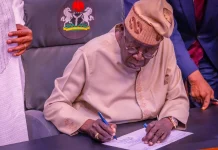The Nigerian Presidency has recently defended the approval of a N10 billion solar power project for the Aso Rock Villa, the official residence of the President. Bayo Onanuga, the Special Adviser to President Bola Tinubu on Information and Strategy, made this defense in response to public concerns regarding the project’s cost and its necessity, especially given Nigeria’s current economic challenges.
Onanuga highlighted that the decision to implement solar power at the Presidential Villa aligns with global best practices, noting that the White House in Washington, D.C. also utilizes solar energy. He emphasized that the project aims to move the Presidential Villa off the national grid due to unsustainable power costs from the Abuja Electricity Distribution Company (AEDC).
The Federal Executive Council (FEC) approved the N10 billion plan, which is intended to provide a comprehensive solar energy system for the President’s residence and other essential facilities within the Aso Rock complex. However, critics have raised questions about the timing and scale of this expenditure, particularly in light of the economic difficulties faced by many Nigerians.
Conclusively, the government positions this solar initiative as a step towards sustainable energy use in government facilities while also addressing the high costs associated with traditional power sources.










